Groundbreaking Conference on AI and the Future of Work Offers Hope for a More Sustainable Future
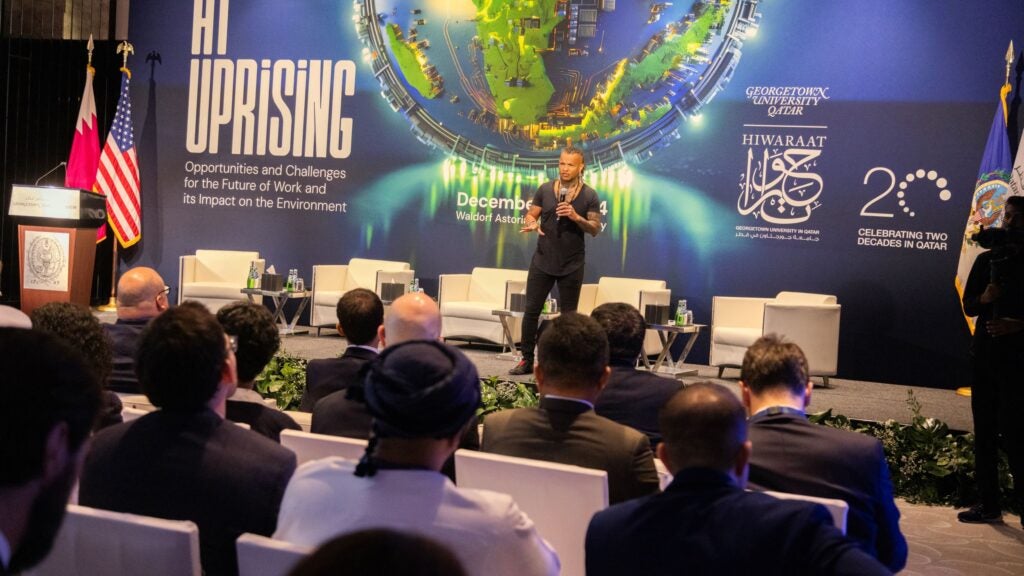
Georgetown University in Qatar (GU-Q) has concluded its much-anticipated ninth Hiwaraat conference, “A.I. Uprising: Opportunities and Challenges for the Future of Work and its Impact on the Environment.” Held in collaboration with Carnegie Mellon University in Qatar, the event brought together world-renowned experts and visionaries to understand the future of work by looking at the intersection of humanity’s most pressing challenges: the environmental crisis and the rapidly evolving landscape of Artificial Intelligence (AI).
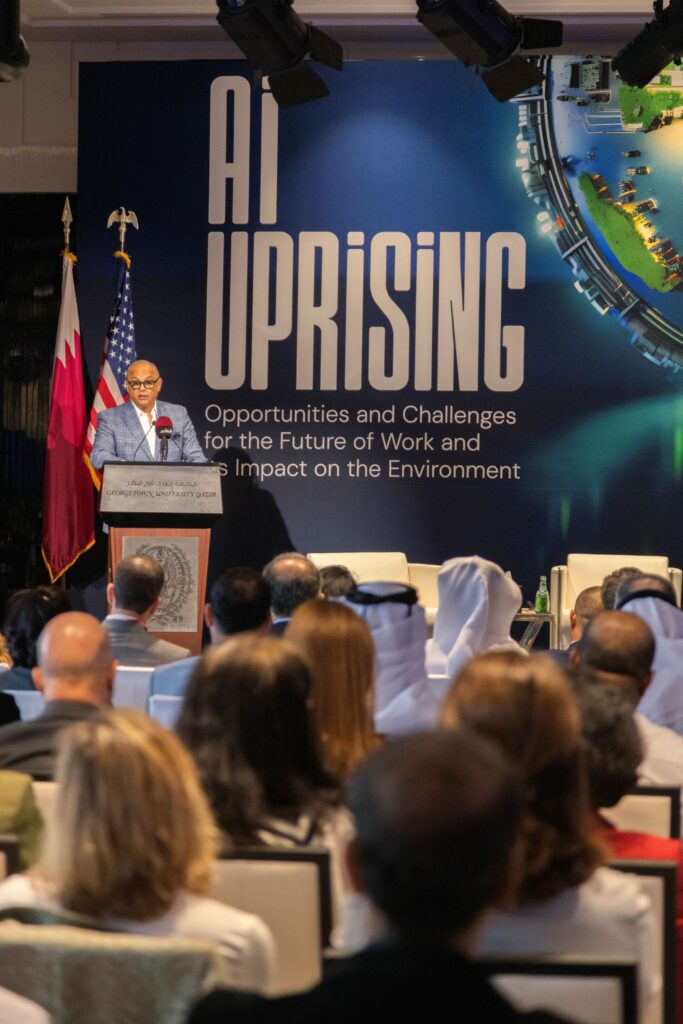
In his opening address, GU-Q Dean Safwan Masri underscored the importance of bringing a multidisciplinary approach to considering the effects of AI on planetary and social systems, saying “Within Georgetown’s Jesuit tradition lies our age-old belief that work is a calling, and stewardship of the environment a shared responsibility–principles that shape today’s conference,” he said, adding: “AI has forced us to reconsider who we are…standing at the threshold of either elevating humanity to heights we have never imagined, or unraveling the very threads that bind us.”
Keynote speaker Dr. Moriba Jah, Professor of Aerospace Engineering and Engineering Mechanics at the University of Texas at Austin, set the stage for a day of insightful discussions, saying: “Our collective actions and decisions have put us on a path of self-extinction… but there is hope.” His address offered insight into how we can augment our intelligence by using machines to process data that we can interpret to make better choices, “We need to see machines as collaborators, we cannot achieve sustainability without them,” Dr. Jah said, concluding: “Power resides in our choices.”
Quantum Physicist, Ballerina, and an artist in residence at NYU Abu Dhabi, Dr. Merritt Moore, delivered the second keynote offering insights into the evolving relationship between technology and humankind, highlighting the creative partnership between humans and machines to increase knowledge, learning, and human self-awareness in an age of AI.
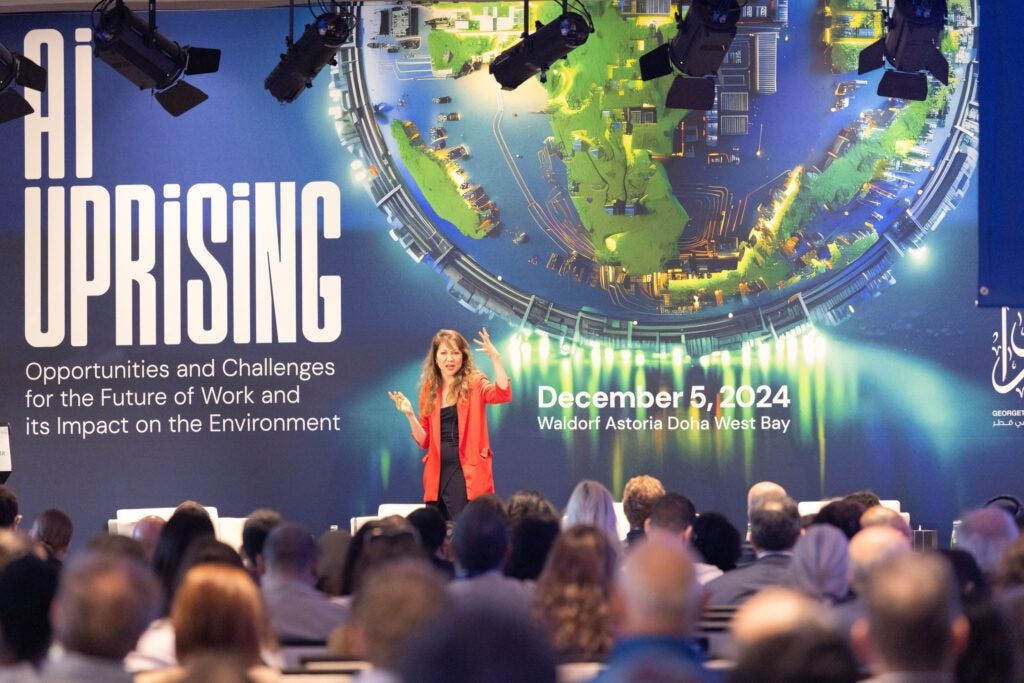
The conference included a special emphasis on Qatar and the Gulf region, and was followed by a day of closed-door discussions with high-level guests and national stakeholders, shaping actionable paths forward in key areas related to artificial intelligence, the environment, and the future of work.
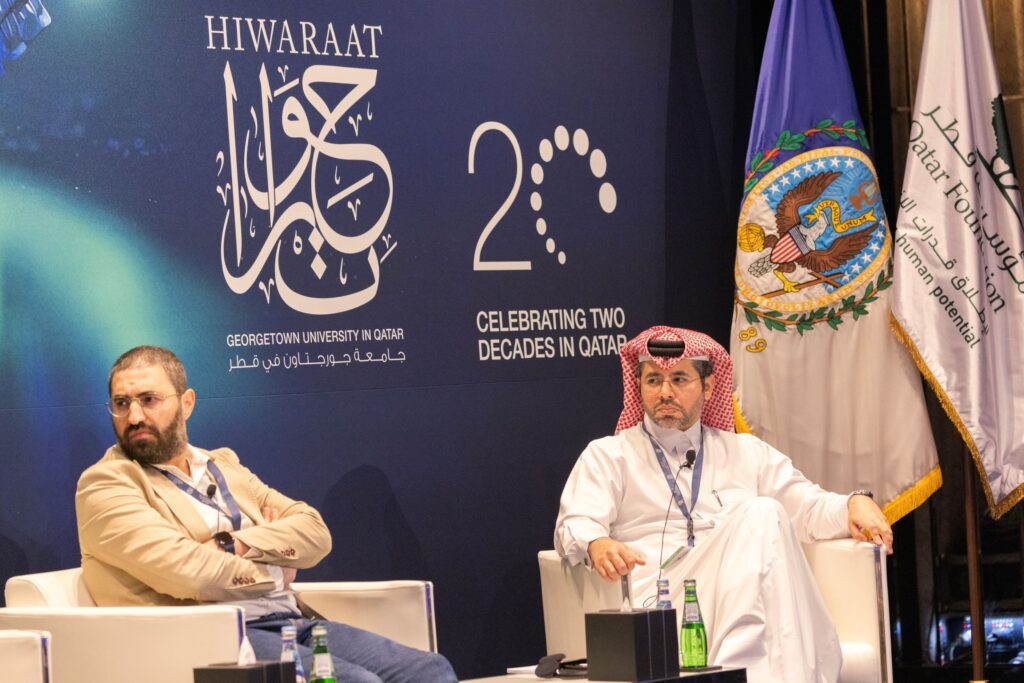
Mohammed Al-Hardan, Head of Technology in the Media and Telecommunications department at Qatar Investment Authority (QIA) talked about the benefits and challenges of implementing innovative technologies in the region saying: “The immediate theoretical long-term benefit is cheaper products and services, which translates into better livelihoods and higher disposable income.”
He shared some of the investments in AI companies that QIA is making to prepare its digital infrastructure for transformation, but also highlighted the major challenges of these changes. “We are seeing countries run out of power” he explained, saying: “In a world of concern around global warming and ESG [Environmental, Social, and Governance frameworks], the power needs of AI are just out of proportion, and that has lots of implications for the environment.”
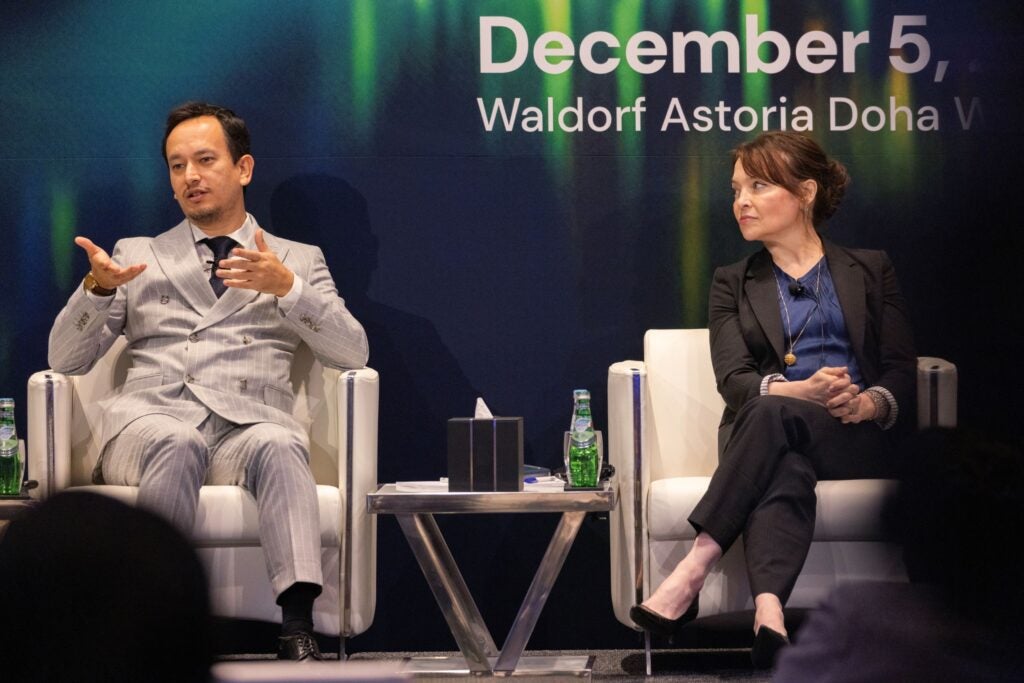
Other speakers included the CEO of Siemens Smart Infrastructure in the Middle East, Hakan Ozdemir, who shared how his company is incorporating transformative technologies within the region to increase sustainability and decrease costs, while Rika Nakazawa, a technology leader, venture capitalist and Chief of Commercial Innovation at NTT discussed what can be done to build sustainability into technological transformation.
Raha Hakimdavar, Senior Advisor to the Deans of GU-Q and Georgetown University’s Earth Commons Institute, led an insightful panel examining how AI is changing the nature of work and increasing economic inequality, and what that means for training the next generation of knowledge workers equipped to use AI to transform the world for the better.
The concluding panel moderated by GU-Q Professor and Director of International Economics Alexis Antoniades, offered concrete insights on AI and the labor market transformation. Salim Al-Barami, Strategic Planning and Digital Transformation Advisor at the Qatar Ministry of Labour shared how Qatar is currently using AI to analyze its labor market to provide advice for high school and university students.
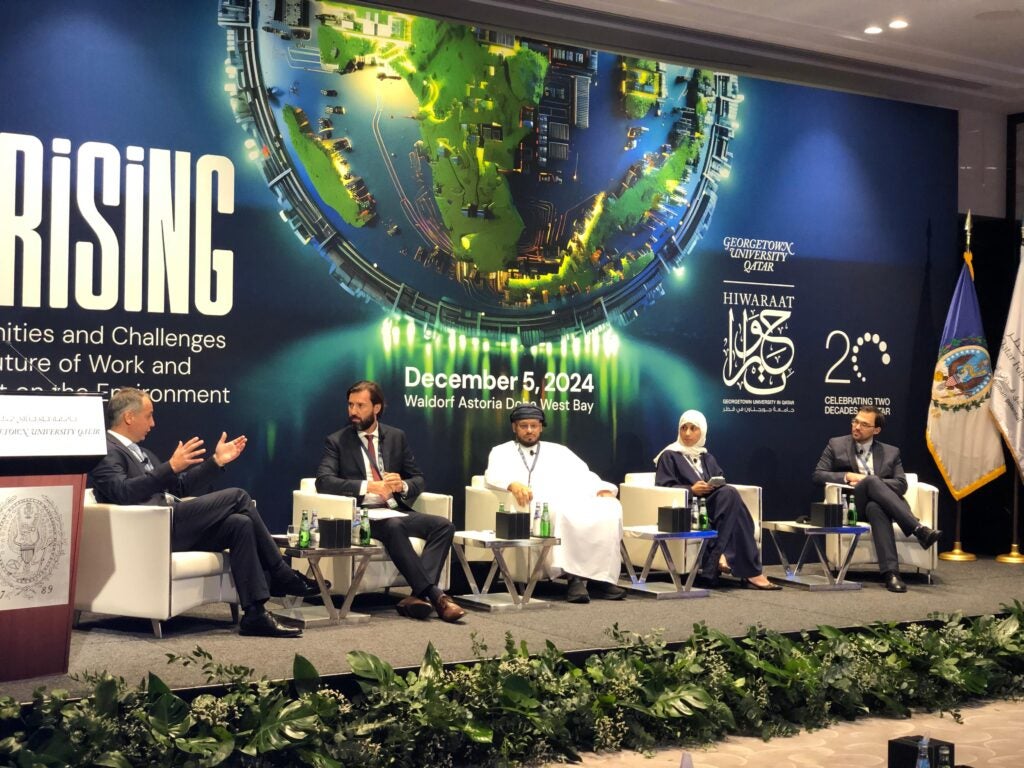
Pawel Gmyrek, Senior Researcher at the International Labor Organization, offered a global picture of labor change due to generative AI, saying about 5% of jobs could be replaced with AI, 15% could benefit from AI augmentation, while another 20% will be affected, but more data is needed to understand how.
Hoda Alkhzaimi, Strategic Advisor, and Associate Vice Provost of Research Translation, Innovation and Entrepreneurship, NYU Abu Dhabi, said that there are more than 25 simultaneous technological breakthroughs which will affect the future of work, but that the current economic cycle is only focusing on AI. Yet, despite these changes, communications, organization, and teamwork are likely to remain the top skills for the future, reassured Emmanouil Chatzikonstantinou, GU-Q Assistant Professor of International Economics. While specific digital skills go up and down in data analysis of employer demand, “the bottom line is that the most important and soft skill of the future is the ability to use and adapt to new technology.”
About the Hiwaraat Series
The Hiwaraat conference series at GU-Q provides a platform for inclusive dialogue on globally relevant issues. By bringing together scholars, policymakers, and the public, the series fosters innovative solutions and informed discourse on humanity’s most pressing challenges.